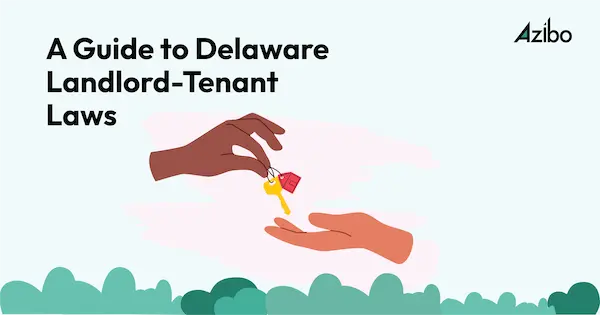Are you a Delaware landlord struggling with the daunting task of evicting a tenant? Look no further! This guide will walk you through the step-by-step process of evicting a tenant in Delaware, helping you understand the reasons for eviction and the necessary procedures involved.
By the end, you’ll have the knowledge and confidence to navigate the legal complexities and protect your rights as a landlord.
Let’s get started on your journey to a successful eviction process.
Reasons for Eviction in Delaware
There are several reasons why you, as a landlord in Delaware, may need to initiate the eviction process.
Under Delaware eviction law, these reasons include:
– Holding over after the lease term expires
– Failure to pay rent or wrongfully deducting money from the rent
– Breaching a lawful obligation
– Holding over for more than five days after the property has been sold and the title transferred
– Refusing to move out for repairs when the unit becomes uninhabitable after fire or casualty
– Being convicted of a class A misdemeanor or any felony during the term of tenancy which caused or threatened to cause irreparable harm to any person or property.
When initiating the eviction process, it’s important to serve the tenant with a proper eviction notice in Delaware and follow the legal procedures to obtain a writ of restitution.
Landlord Serves a Zero- to Seven-Day Eviction Notice
To initiate the eviction process in Delaware, you, as a landlord, must serve the tenant with a zero- to seven-day eviction notice. There are different types of eviction notices depending on the reason for eviction.
If the tenant fails to pay rent or wrongfully deducts money from the rent, you can serve them with a Rent Demand Notice, giving them five days to quit.
For lease violations, such as breaching a lawful obligation, you can serve a Lease Violation Notice, giving the tenant seven days to cure the violation or quit the premises.
In cases of repeat violations or immediate eviction, an Unconditional Notice to Quit can be served.
It’s important to follow the proper procedure and include all necessary details in the notice to avoid any legal complications.
Landlord Files an Eviction Lawsuit With the Court
When filing an eviction lawsuit with the court in Delaware, there are several steps you can take to ensure a smooth process.
To begin, you need to file the eviction lawsuit with the Justice of the Peace Court. Complete the Complaint form with all the relevant details, including the evidence of lease violation.
Remember to pay the filing fee of $45, which includes the service of process to the tenant.
Once you have filed the lawsuit, the court will serve the tenant with a summons. This summons will state the time and place of the eviction hearing.
Make sure to serve the summons to the tenant between five and 30 days before the hearing. You can serve it in person, leave it with a person of suitable age, or post it on a conspicuous part of the unit.
Lastly, don’t forget to file proof of service with the court within five days.
Court Serves Tenant the Summons
Serve the tenant with a summons stating the time and place of the eviction hearing. The court issues a court summons to the tenant, which must be served between five and 30 days before the hearing.
There are three acceptable methods for serving the summons. First, it can be served in person to the tenant. Second, it can be left with a person of suitable age and discretion who resides at the tenant’s address. Lastly, if the first two options aren’t possible, the summons can be posted on a conspicuous part of the unit.
Whichever method is chosen, proof of service must be filed with the court within five days. It’s crucial to ensure that the tenant receives the summons in a timely manner to proceed with the eviction process smoothly.
Landlord and Tenant Attend Court Hearing and Receive Judgment
Once the summons has been served, you’ll need to attend the court hearing along with the tenant, where a judgment will be issued. This hearing is an opportunity for both parties to present their case and provide evidence to support their claims. It’s important to come prepared with any relevant documents or witnesses that can support your argument.
During the hearing, the judge will listen to both sides and make a decision based on the evidence presented. The judgment could go in favor of the landlord, ordering the tenant to vacate the property, or it could be in favor of the tenant, allowing them to remain in the rental unit.
It’s crucial to respect the court’s decision and follow through with any necessary actions based on the judgment. If the judge rules in favor of the landlord, the court will issue a Writ of Restitution that will tell the tenant to vacate the property within a certain amount of time. If that timeframe passes without the tenant leaving, the sheriff can execute the writ and forcibly remove them.
Conclusion
In conclusion, understanding the eviction process in Delaware is crucial for landlords facing the challenge of evicting a tenant.
This comprehensive guide has provided essential information on the reasons for eviction, serving eviction notices, filing eviction lawsuits, and attending court hearings.
By following these steps and fulfilling the necessary requirements, landlords can successfully navigate the legal complexities and protect their rights.



